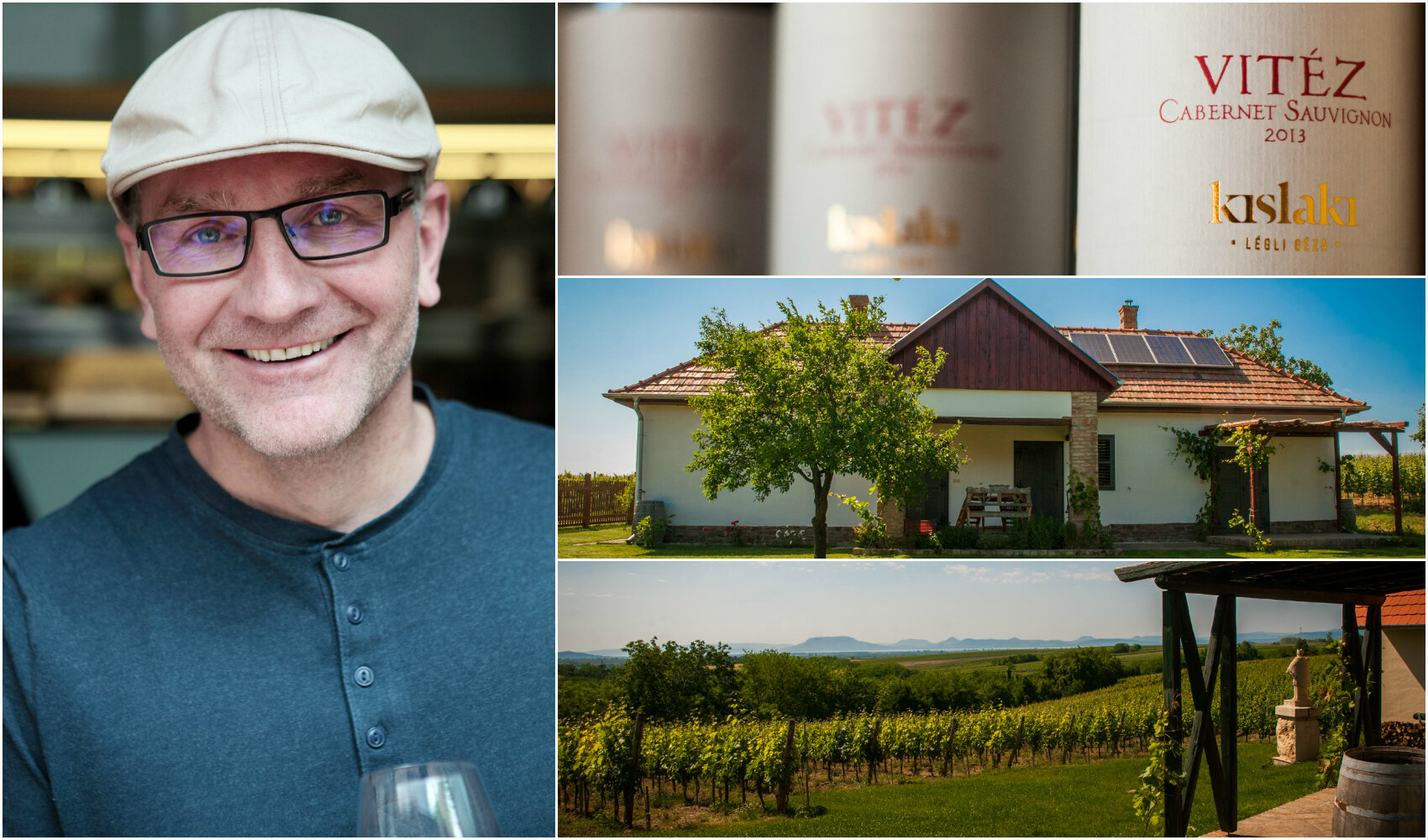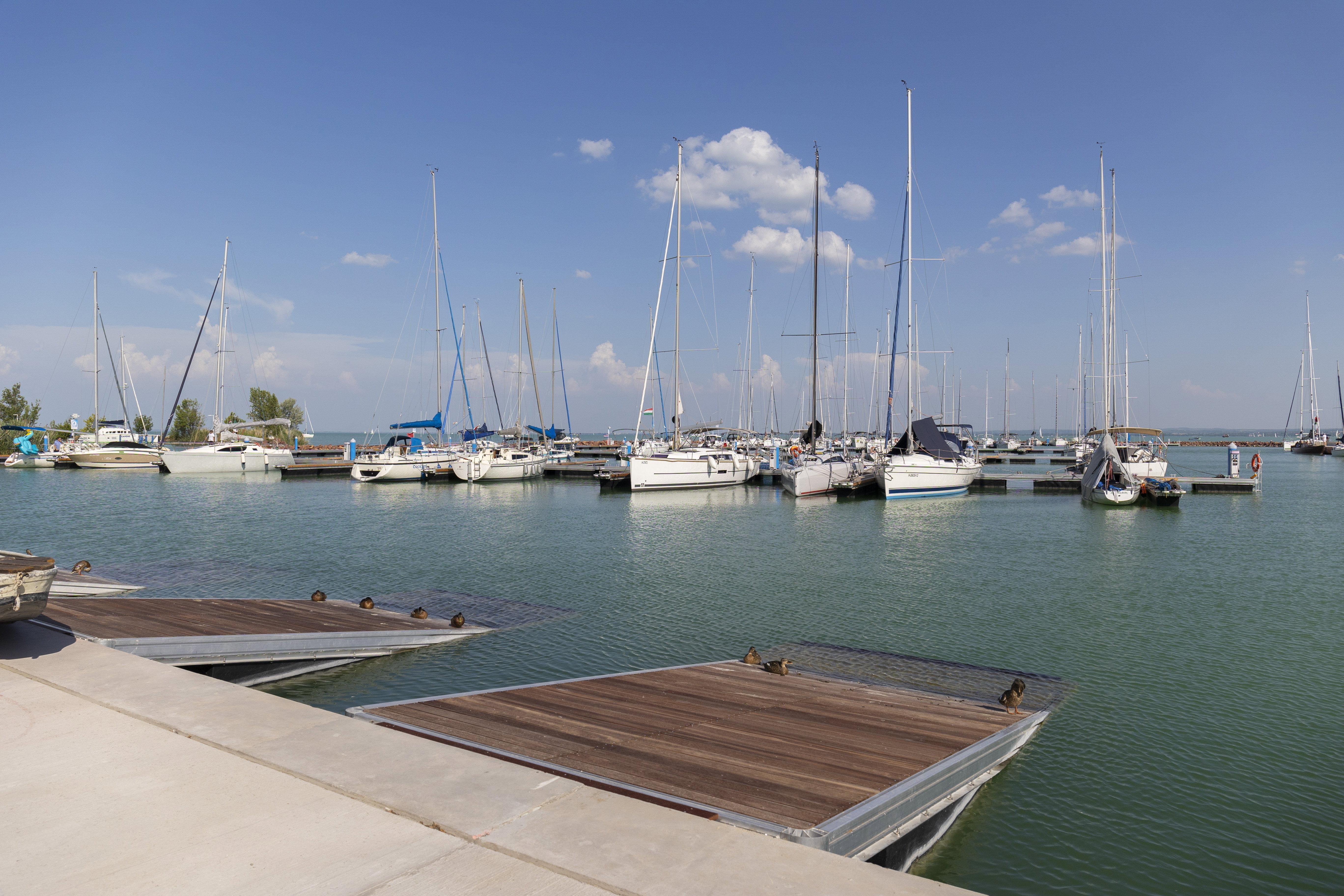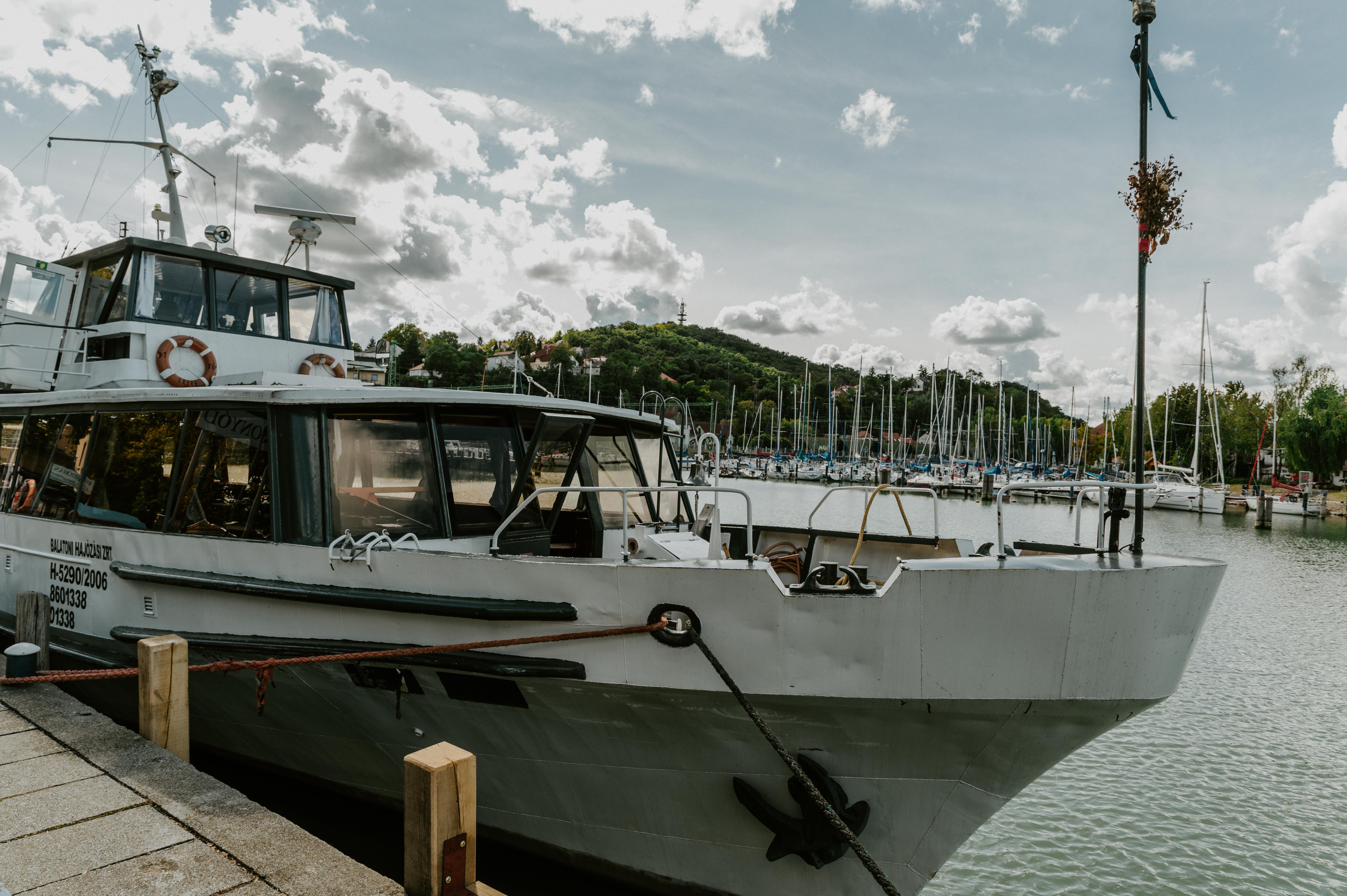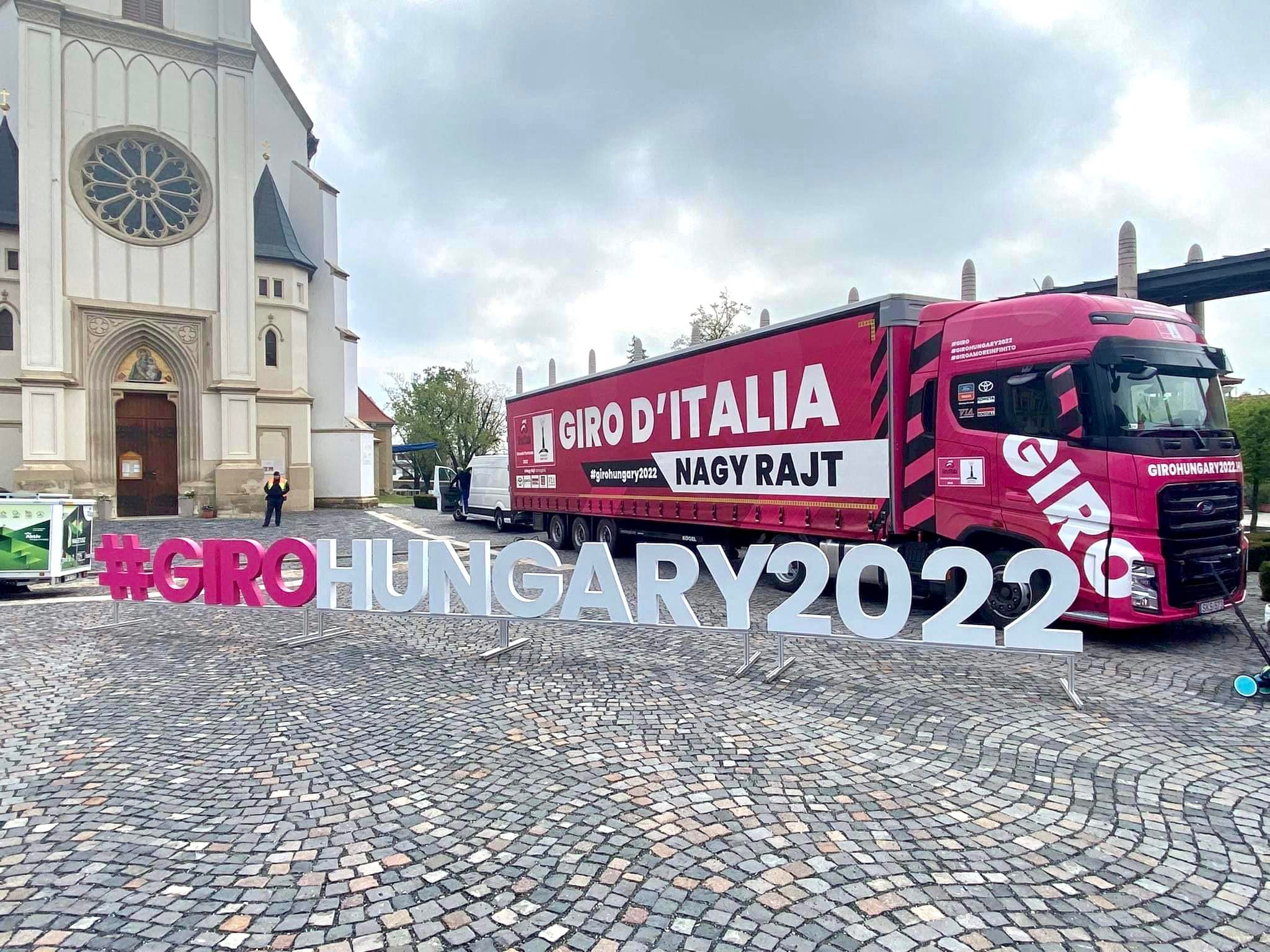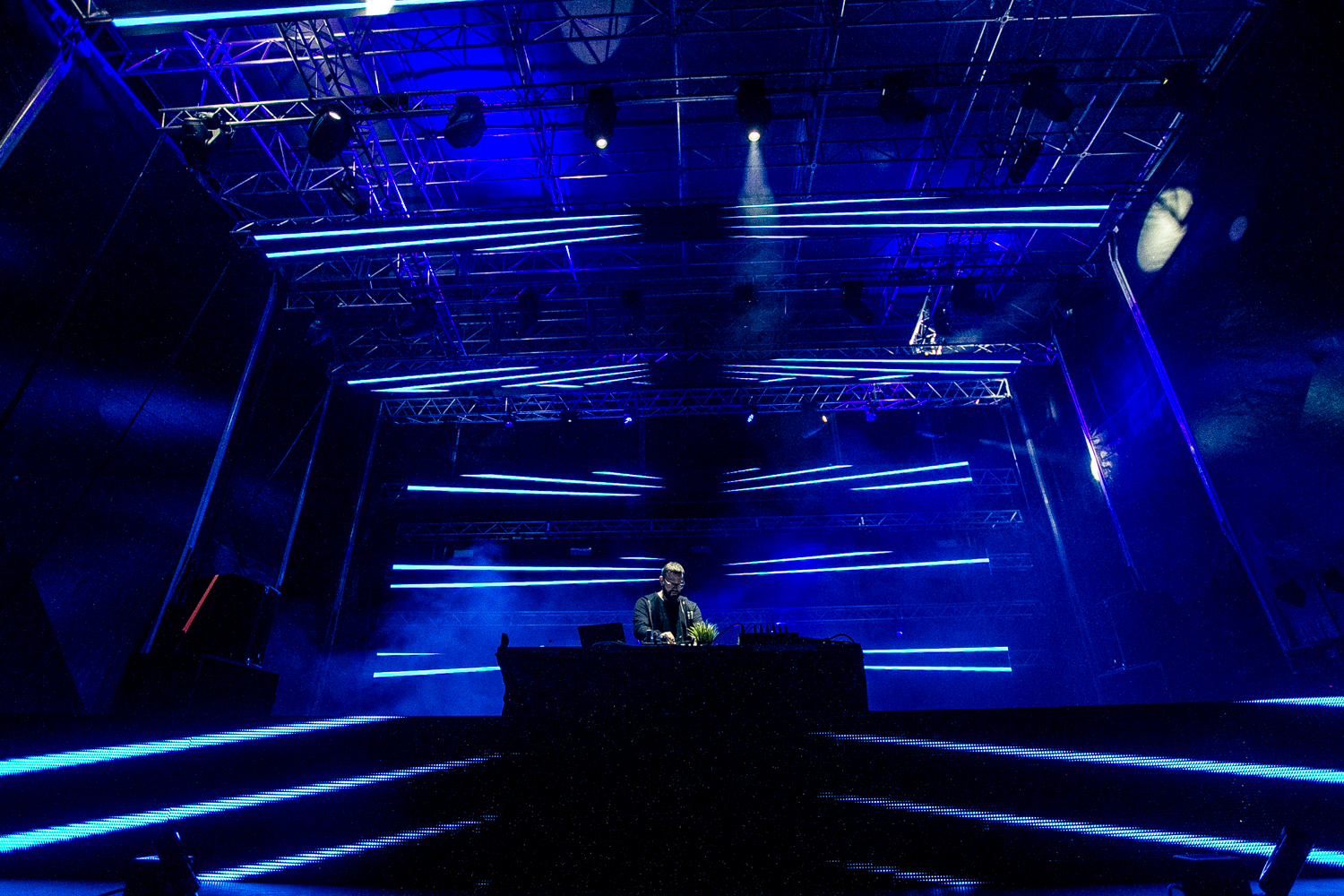By now Géza Légli’s Kislaki wines have become just as integral to the selection of quality wines produced on Balaton’s south shore as the Konyári vintages or the ones made by the Garamvári Vineyard. Being the youngest member of a prominent winemaking family, Légli found that setting up a new winery based on his own ideas was not without its challenges. Another thing many people still don’t understand is why there are solar panels on the roofs of his guest houses on János-hegy.
“Of course, it is possible to spend hours mulling over the characteristics of a wine, but the entire culture of winemaking is somewhat overmystified. The point is much simpler: people come together to chat while drinking a bottle of good vintage.” Coming from a winemaker, the claim sounds quite strange at first, except he doesn’t like to be called a winemaker.
Yet, the Kislaki wines made by Géza Légli are rather valuable items among the vintages produced around Balaton. Instead of marketing, he believes in making unique wines which are promoted by word of mouth, even if that’s a slower way. “Every good wine is its own advertisement. It is a much slower and maybe less efficient process, but over the past ten years people have found out about us.”
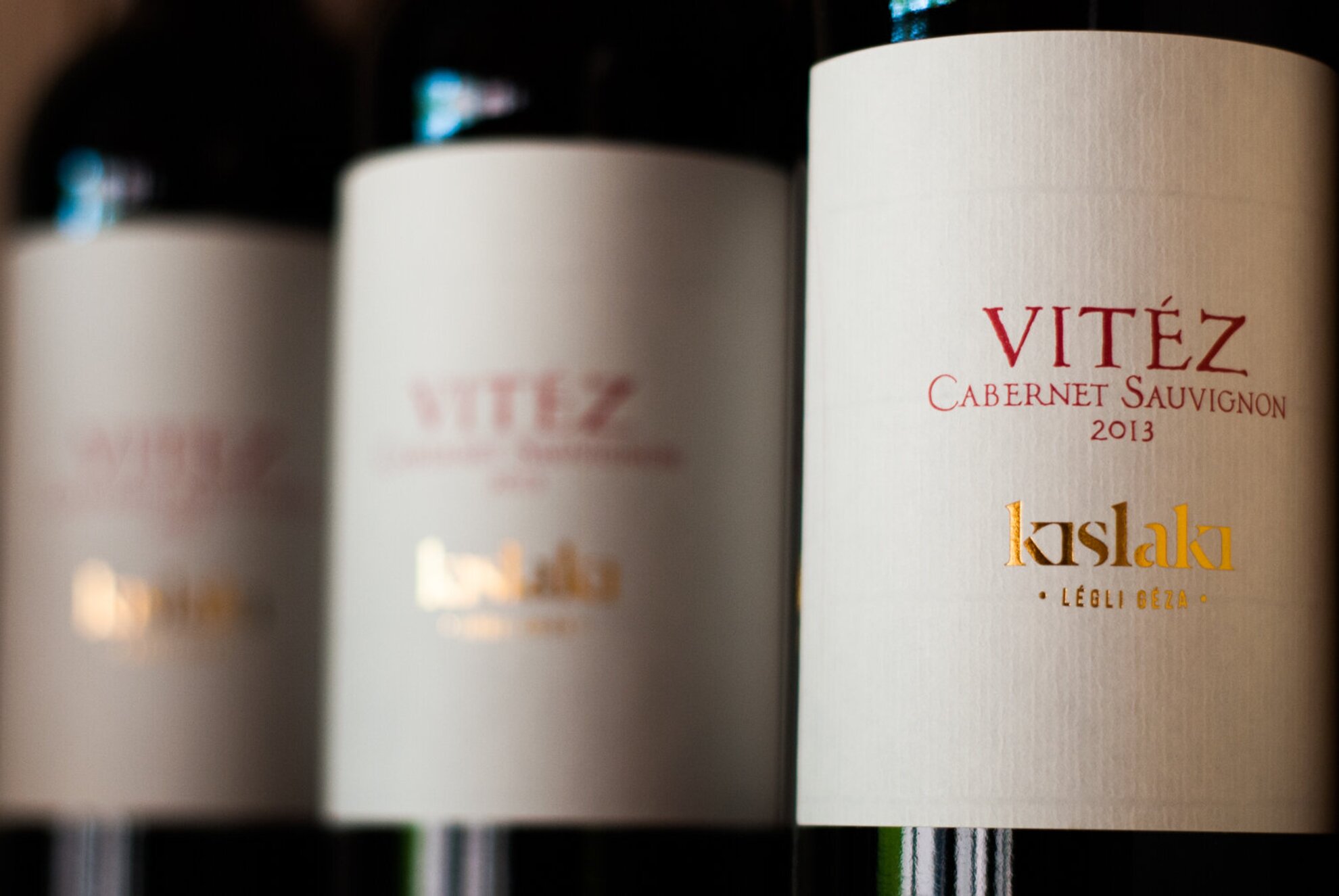
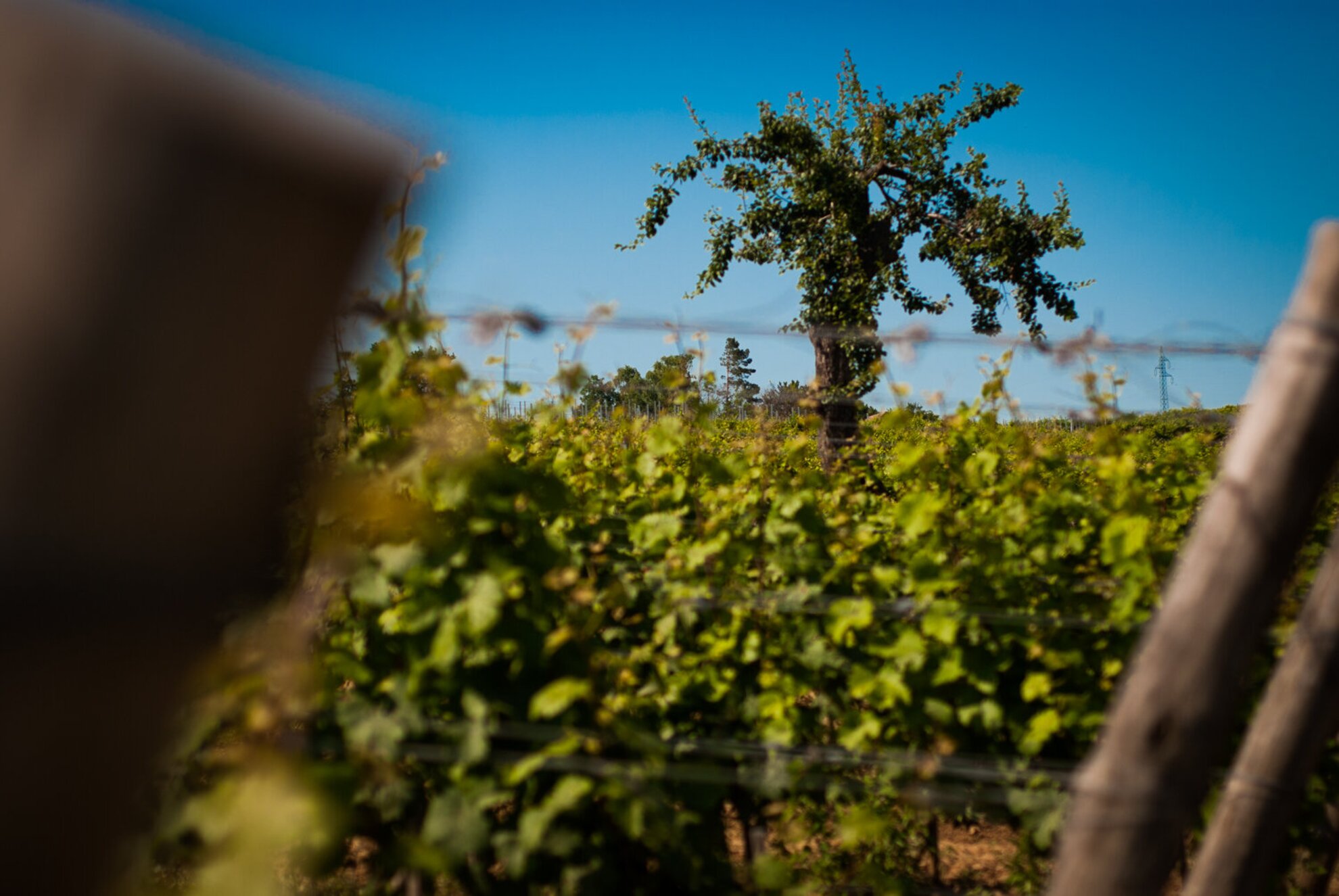
“You see, an overworked vineyard like that will never yield quality wines,” he says as he points to a neighbouring plot on our visit to the wine cellar in Szőlőskislak. Our journey from the house to the guest houses on János-hegy is a bit of a slow one, as from time to time Géza finds something that needs his attention in almost all of the vine rows. He checks the condition of the grapes, he takes a careful look to find out if any of the rows need weeding.
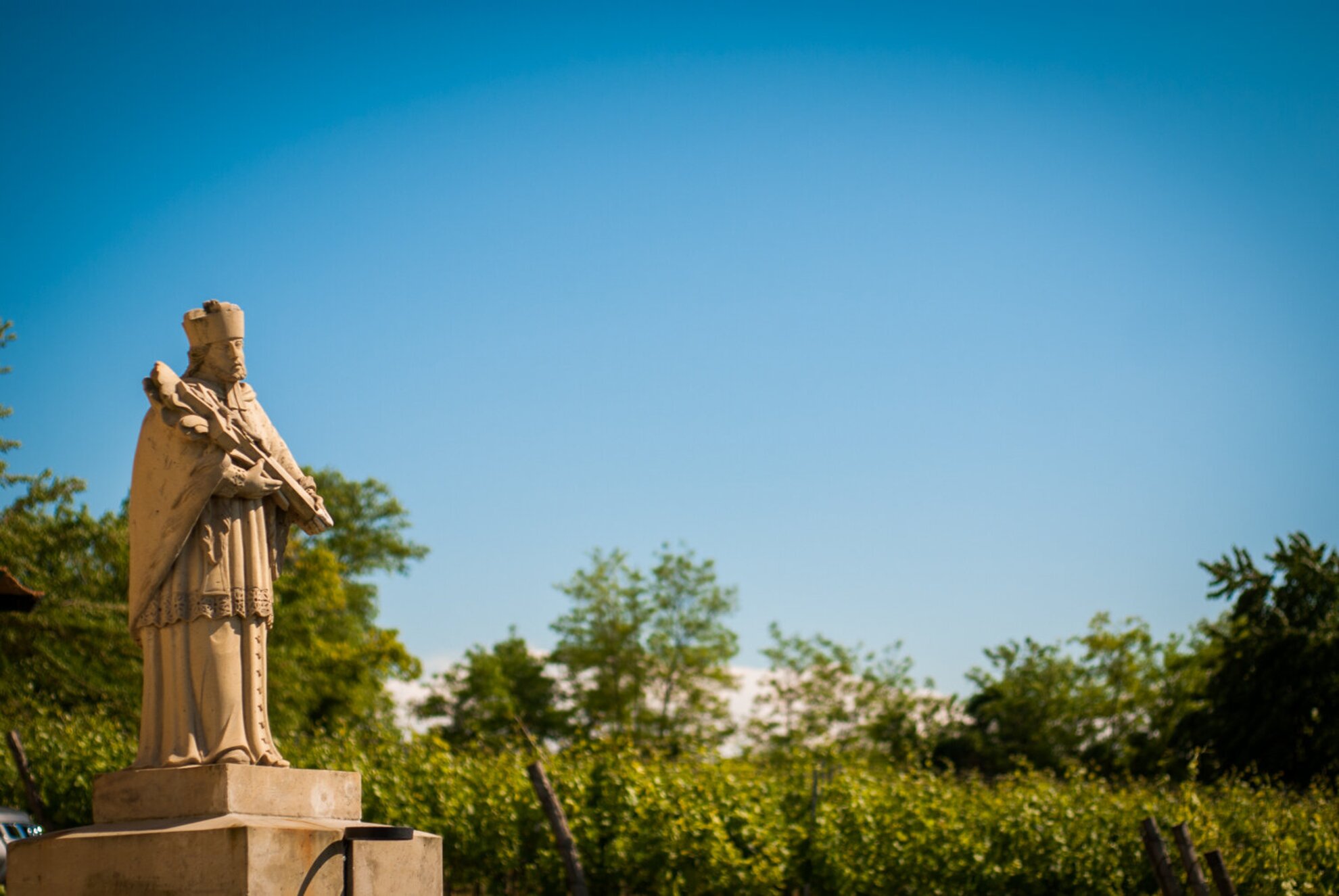
He’s produced artisanal wines on his estates on János-hegy and in Szőlőskislak for ten years, and he says recently he’s been more inclined to call his wines footcrafted rather than handcrafted because referring to vintages with the latter adjective is too mainstream nowadays. What he means by artisanal winemaking is tending the grapes in harmony with nature, using mechanical weeding techniques and keeping the amount of additives to the minimum. “When I started this whole winemaking thing, my aim was to make sure that our wines reflect the unique features of the terroir here, and the best way to do that is through this natural winemaking and working the soil in an intensive way.”
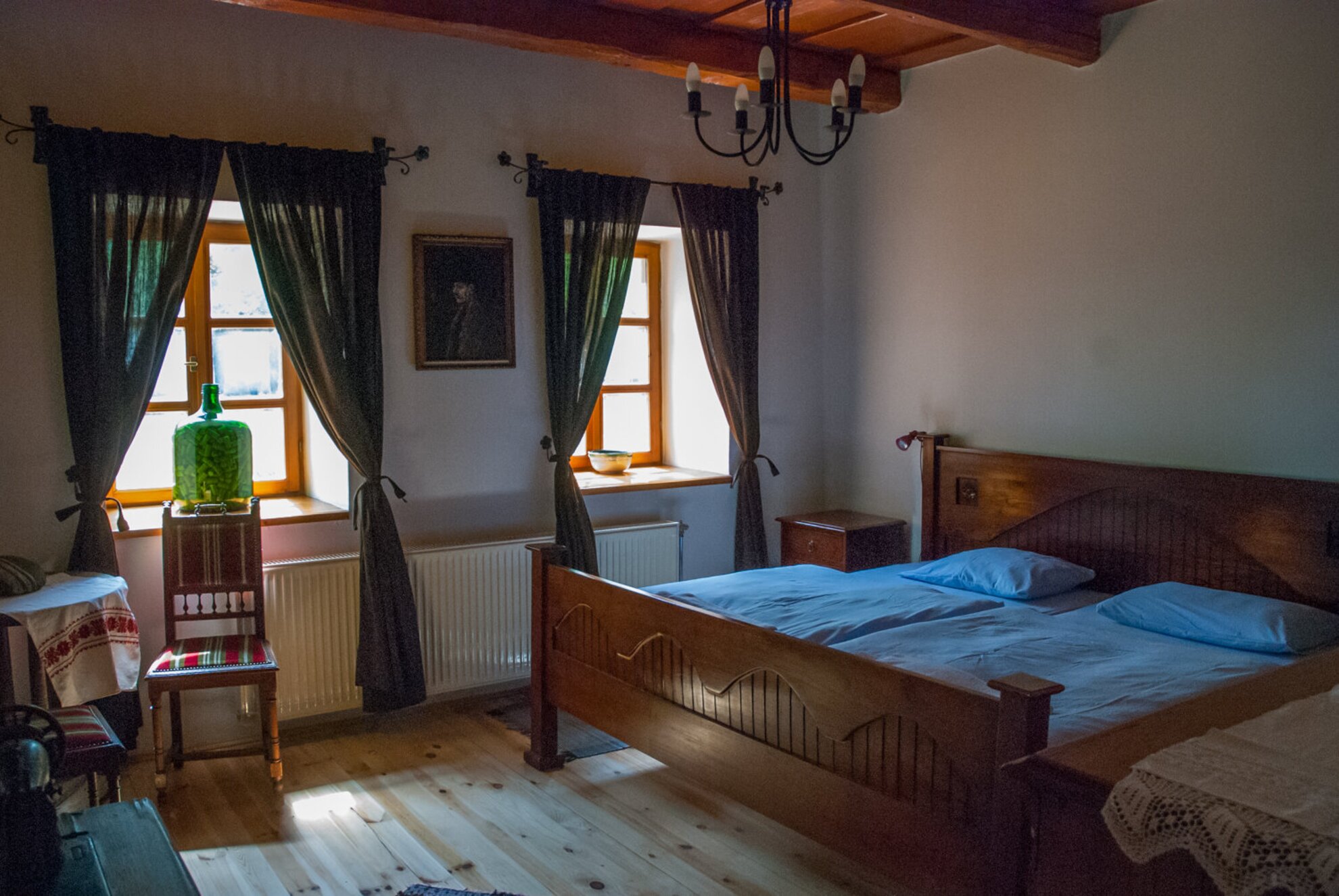
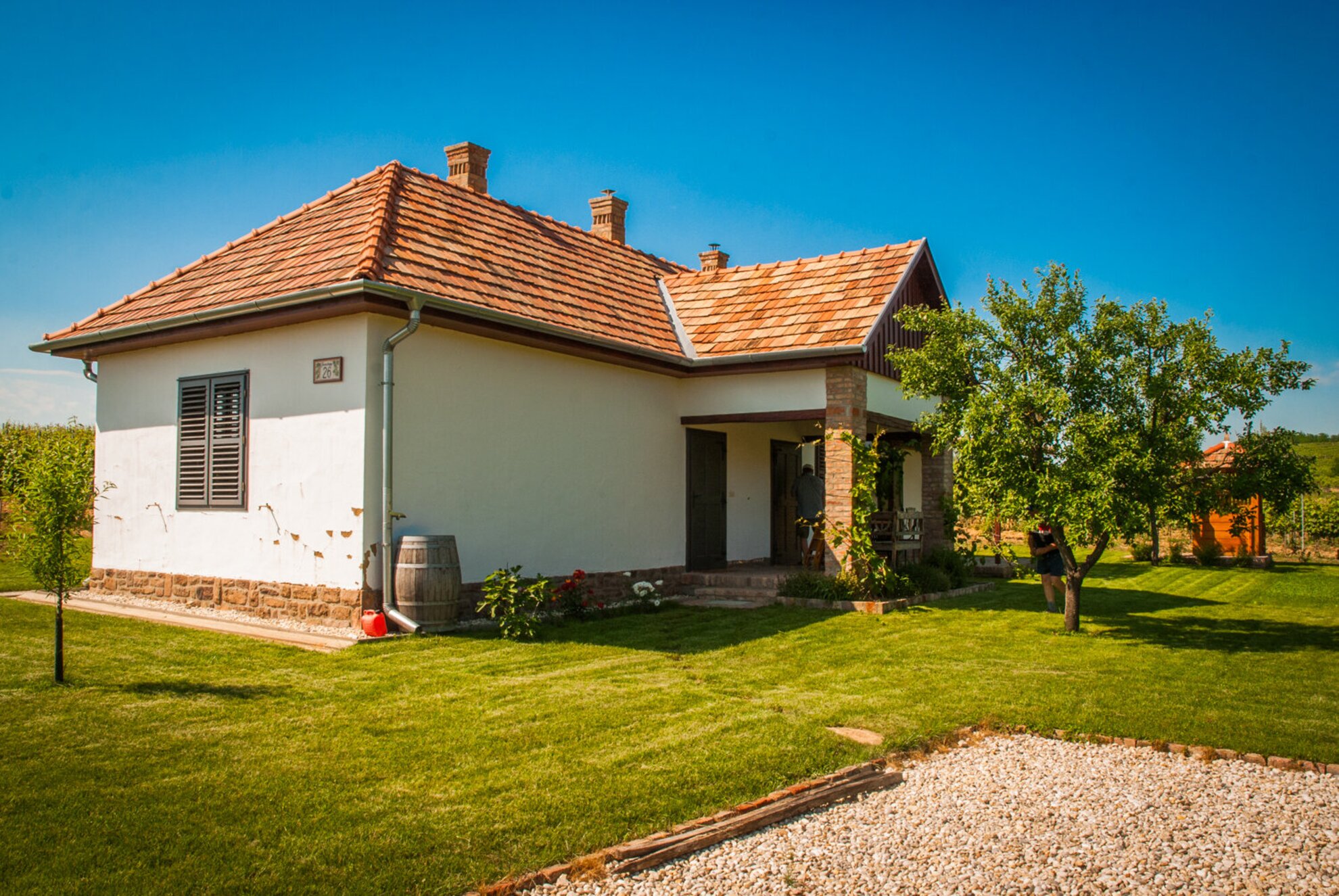
The producer of Kislaki wines adheres to the “back to nature” philosophy in other areas of life as well. In his renovated, loam-walled guest houses you can make coffee on an old stove, and occasionally guests will also have to chop wood to make a fire. “This is a full-on nomadic lifestyle with every good and bad thing that comes with it,” he adds cheerfully.
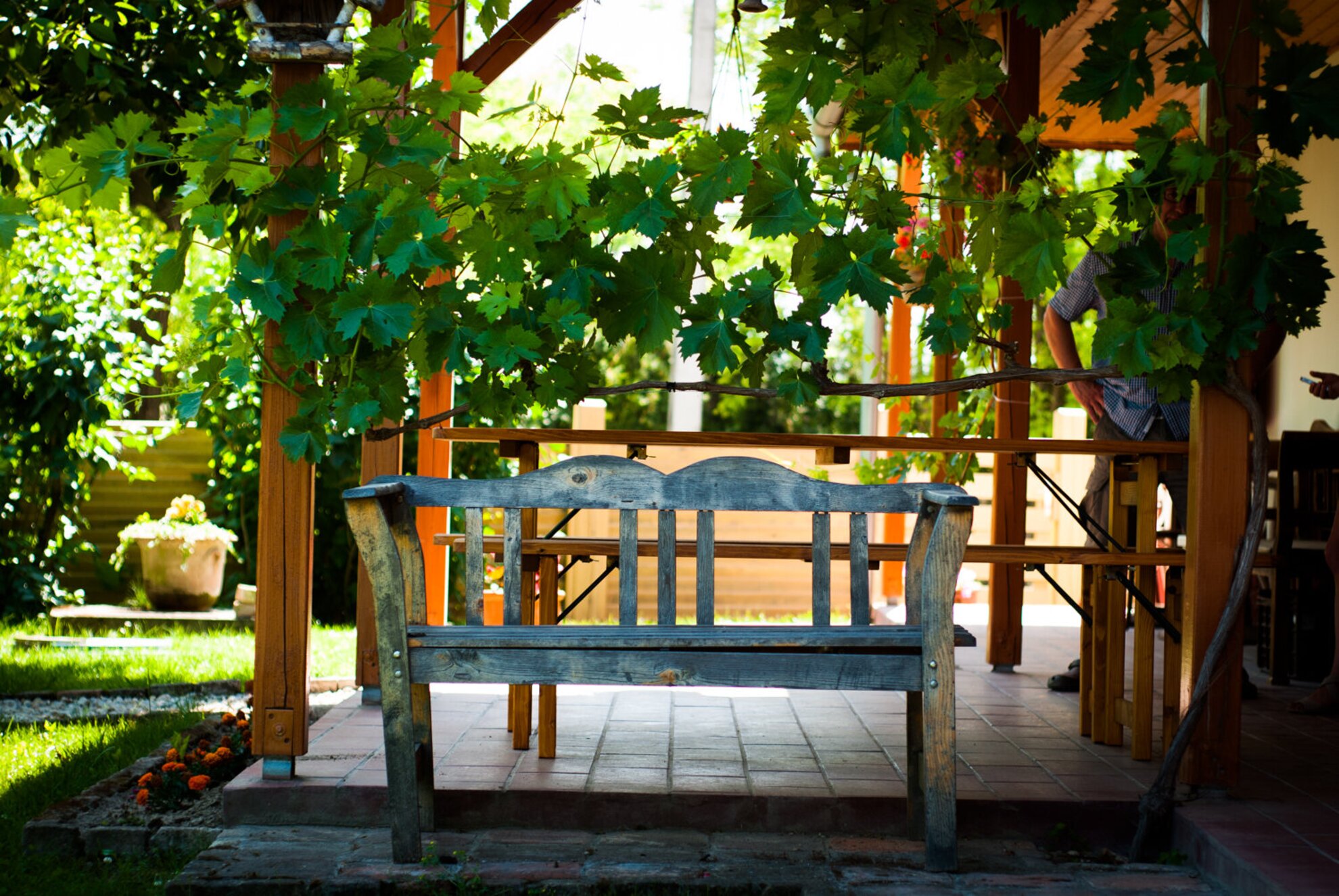
If you need to take a shower, you’ll have to use a big tub, but the little houses and their old furniture are very comfortable and exude a romantic vibe. “Our guests tend to want to do more than just sit back and relax at Lake Balaton. If they have to, they’ll ditch the wellness, and put on rubber boots to immerse themselves in nature."
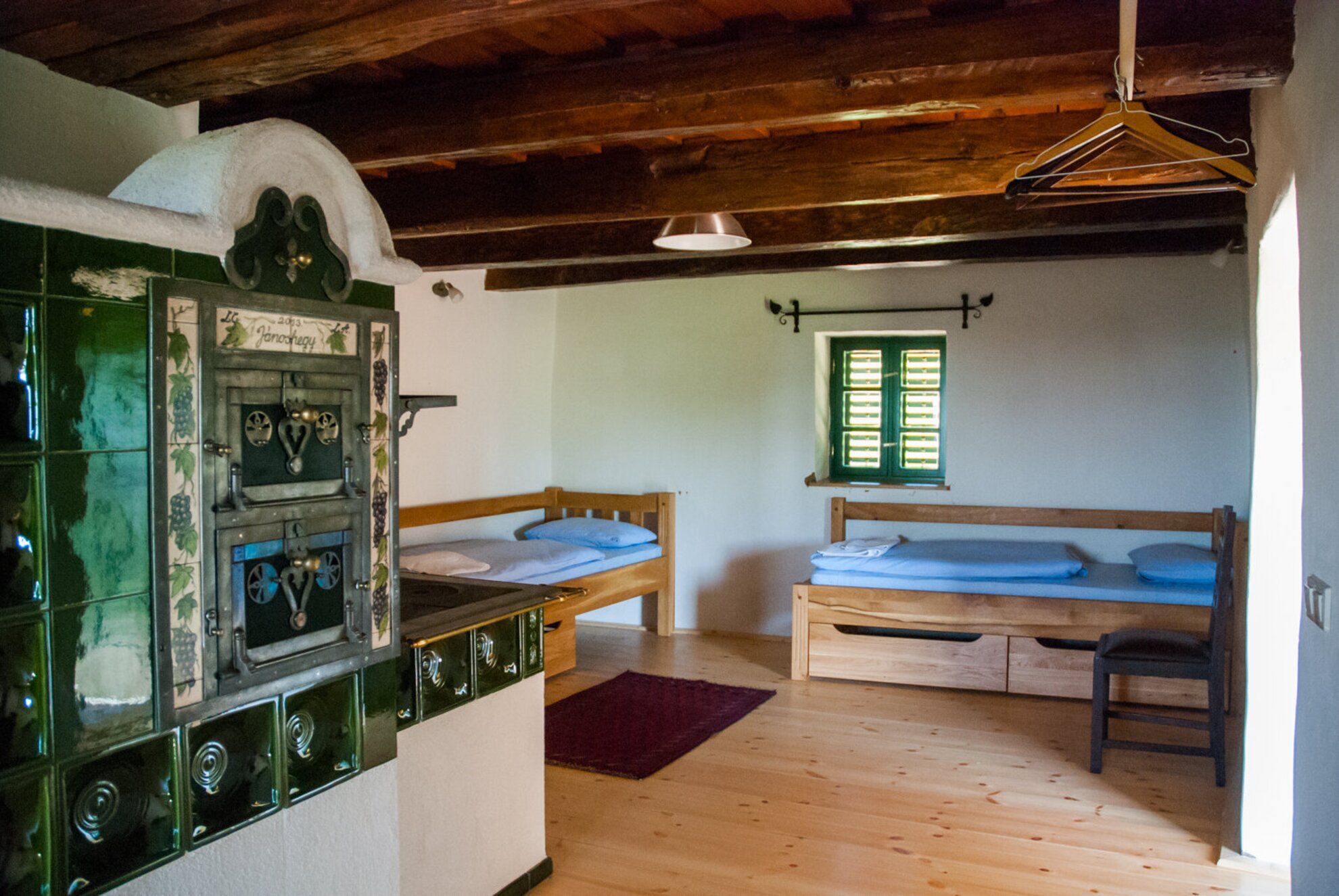
Visitors can choose from three houses – each can be rented for 25,000-40,000 HUF per night. Every house can sleep at least four people, and two of them have solar panels that look like strange shingles on the roofs. These two buildings on János-hegy were fitted with the panels because there was no other way to install electricity, and the system ensures that there's heating and hot water in wintertime too.
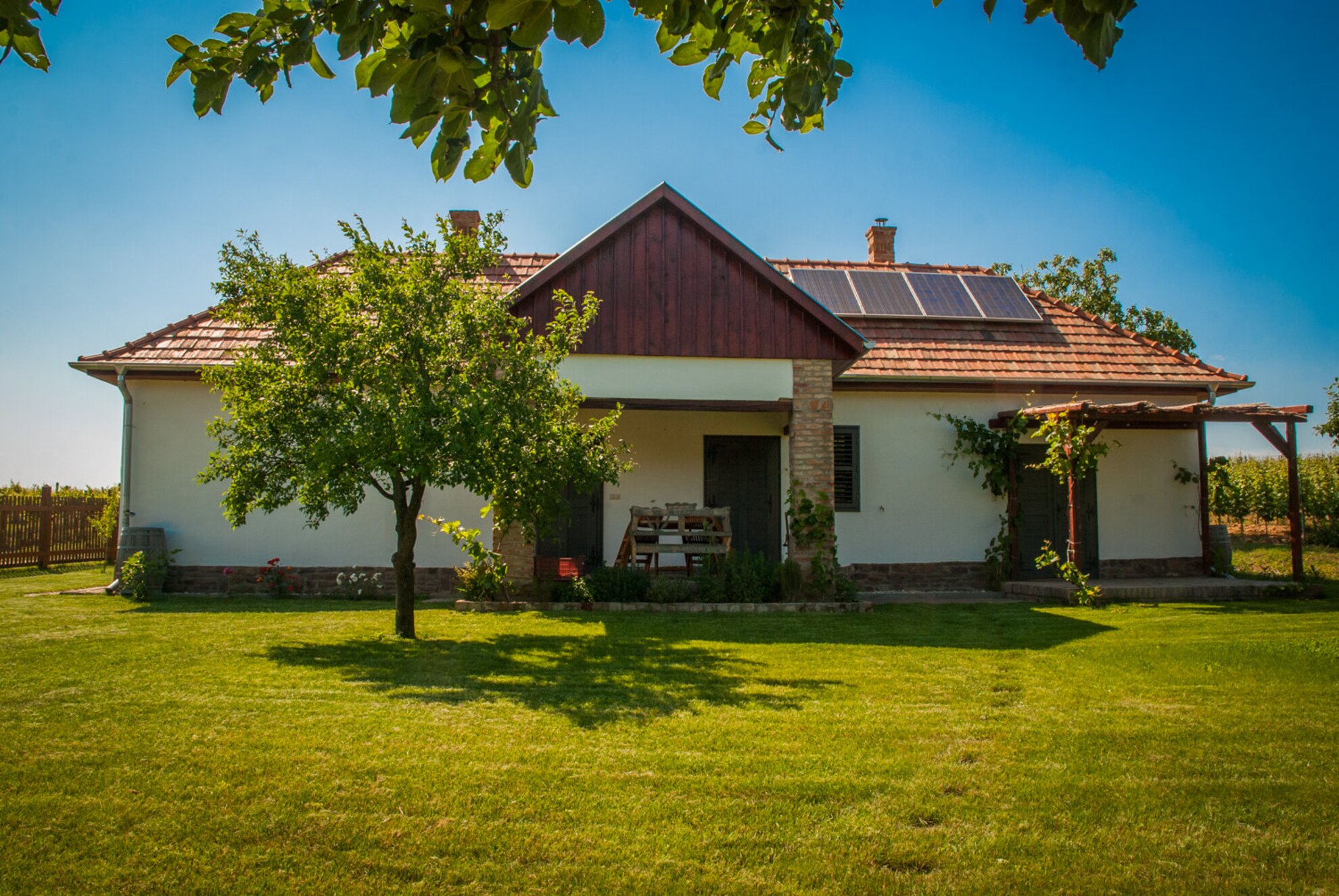
Providing accommodation remains a mere side-activity complementing the winemaking, Légli says he only offers the option because people usually get hungry after drinking wine, and this way no one needs to take on the role of designated driver before the group sets out on a tour of the vineyard. “In my opinion, out of all the things currently produced in the countryside you can only trust the quality of the items you make yourself.” That’s why he leaves nothing to chance: when we visited we saw that the duck prepared for the wine dinner that evening was already in the fridge, the bread baked by Légli himself was done as well, and the elderberry syrup was left to marinate in a big barrel on the porch. “We don’t overmystify things, but we like to cook delicious food for ourselves, so why wouldn’t we do the same for our guests?”
Even those who don’t wish to stay overnight can sign up for a Légli dinner. All you have to do is confirm by phone in advance, and keep in mind that there is no fixed menu, so the price will be set individually for every occasion.
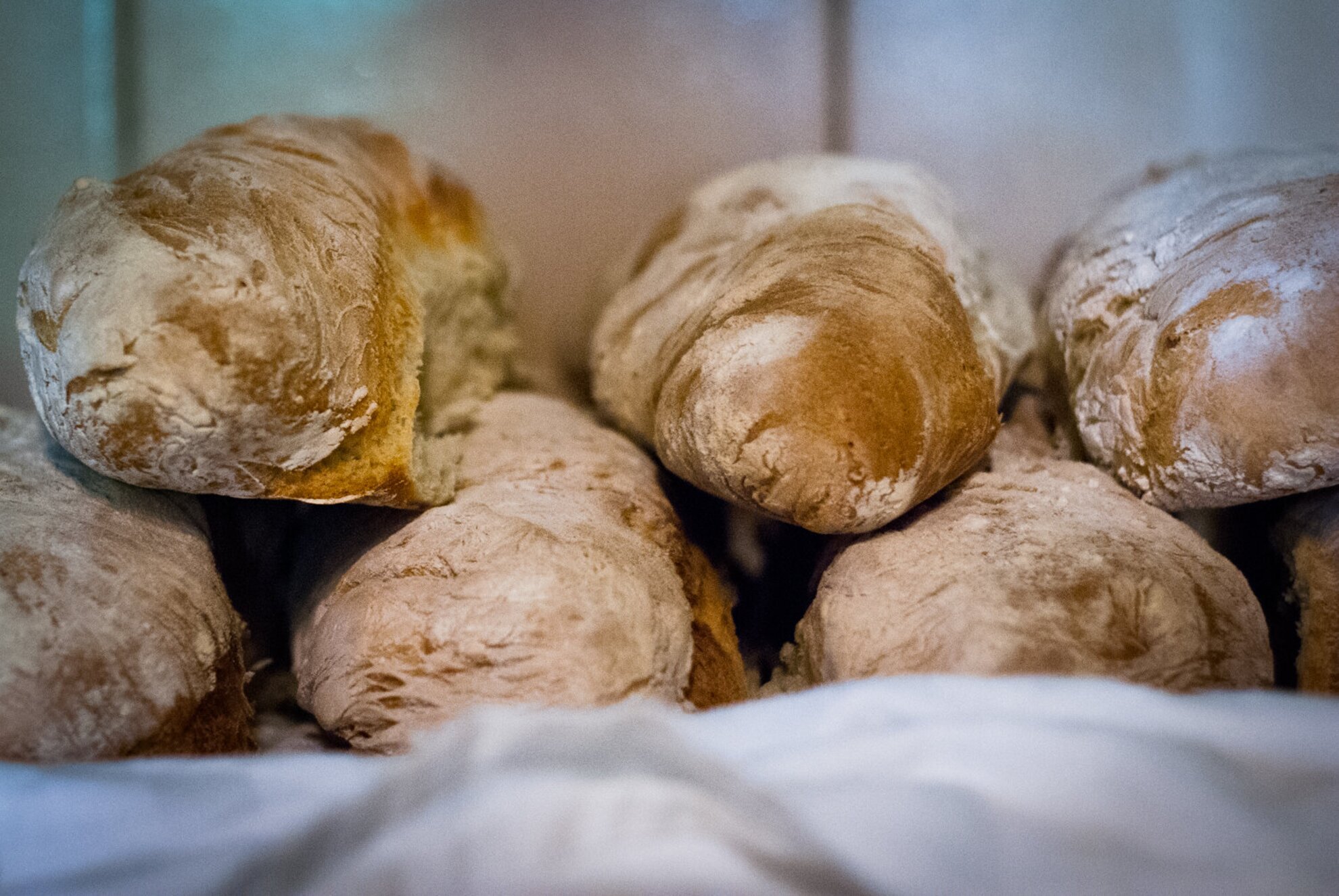
Géza Légli’s path is not that of a typical winemaker. A winding road with a few family conflicts has led him to producing wine the way he does today. When he was a teenager, he didn’t want to yield to the subtle instructions of his acclaimed winemaking father, who wanted the future of his son to unfold at the Légli vineyard. “I grew up in a family of farmers, agriculture and nature were never foreign to me, but I wanted to do something different.” Eventually, he trained to be a potter, and for years he worked with his middle brother, who chose the same profession, while managing the family estate was left to the eldest sibling, Ottó Légli.
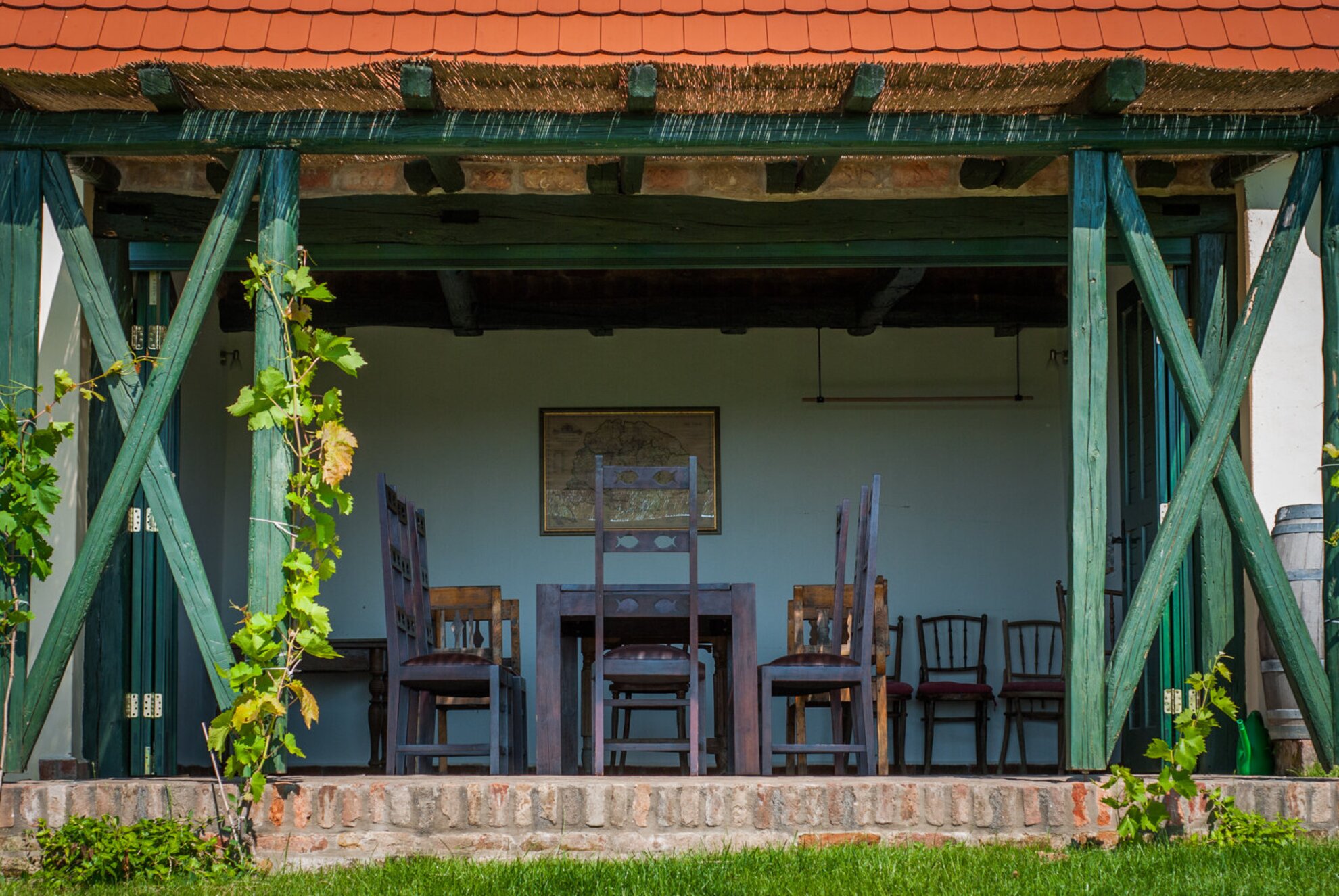
However, ten years ago winemaking started to pique his interest too. It would probably have been easier to join the family winery, but instead he established his own business. He took a different approach to tending the grapes: he wanted to work in an artisanal way, on a smaller scale than the Légli estate.
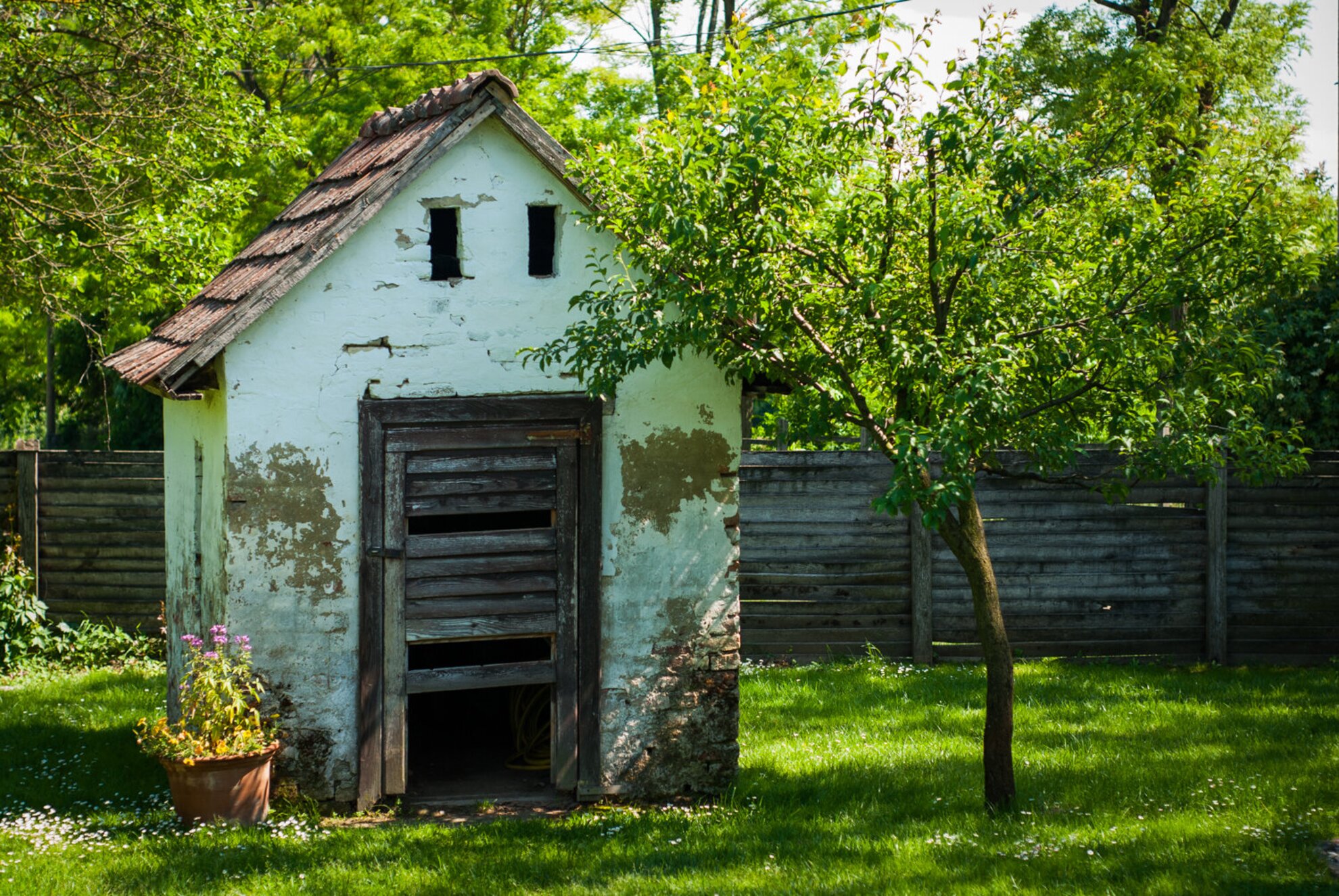
He says there is no point in comparing his wines to the Légli ones, but he admits that the parallel is often drawn because it makes for a good story. Even so, “you have to follow your own way, listen to your own expectations, and work to make the most of your vineyard. Don’t compare yourself to anyone, that’s a bad message. If you’re going to do that, forget about winemaking,” he concludes.
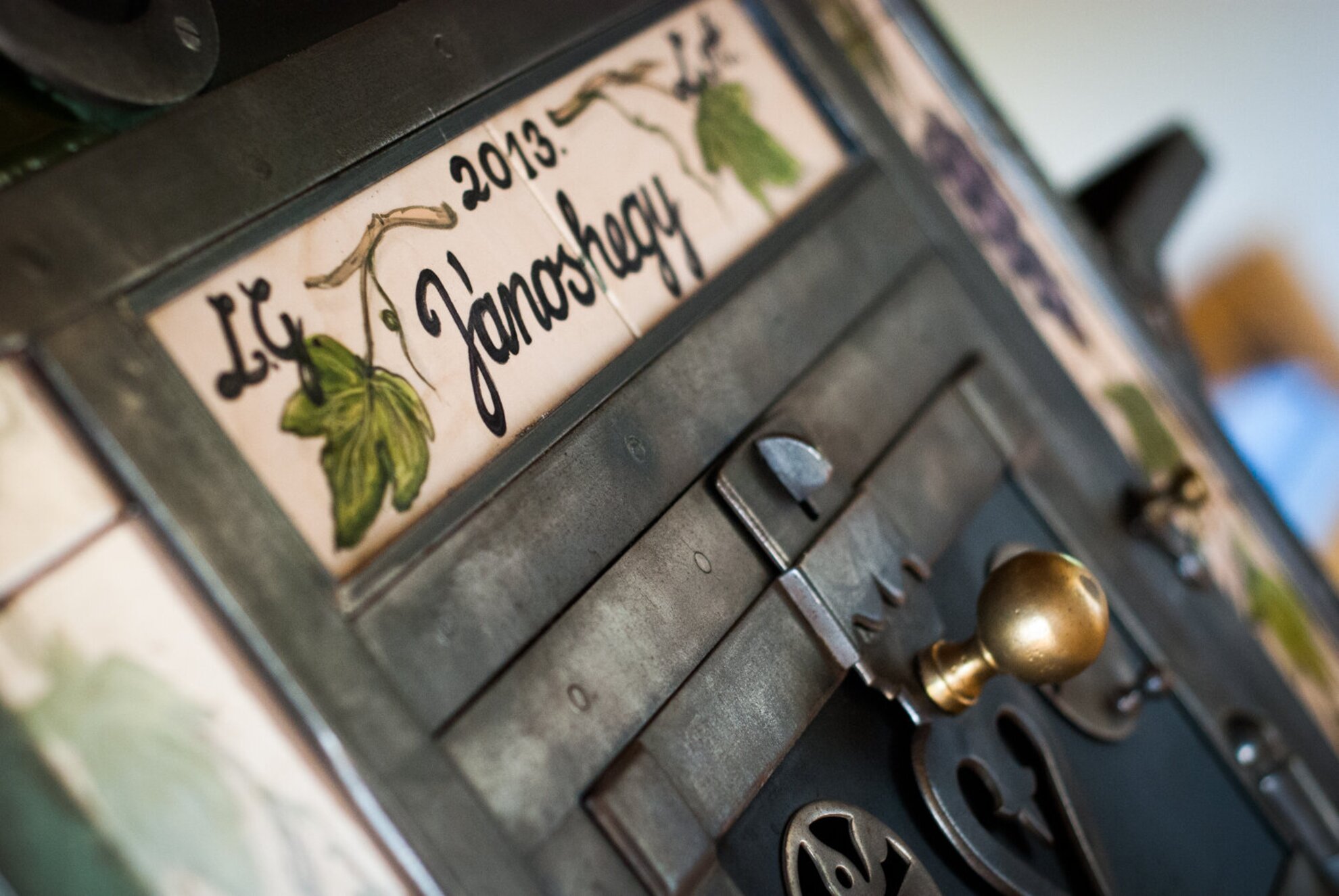
According to Légli, being part of a famous winemaking family was more of a disadvatage in his profession. He feels like by now he’s managed to step out of his big brother’s shadow, which means that he is recognized for his own products both by the public and the winemaking world. For now, visitors to the Kislaki estate can sample a white chardonnay champagne, a white semi-sparkling wine, four kinds of dry whites, five reds and one rosé.
